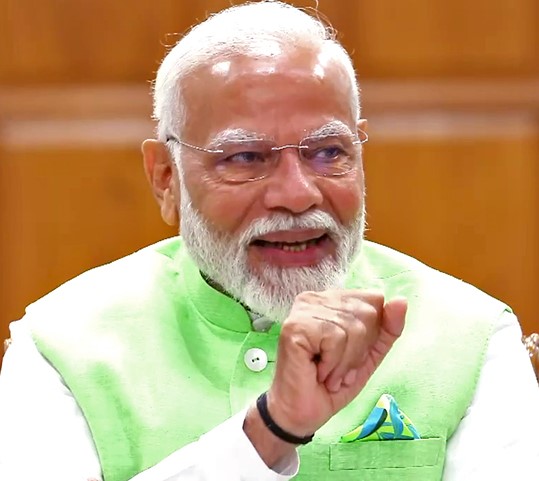Prime Minister Narendra Modi commended the notable progress in the performance of Indian universities in the prestigious QS World University Rankings and said that his government has focused on qualitative changes in the education sector in the last decade and wants to do even more to boost research and innovation in his next term.
Over the past decade, India has increased its representation in the rankings by 318 per cent, the highest growth among G20 nations.
On Friday, PM Modi emphasised the focus on qualitative changes in the education sector over the last decade, attributing the achievement to the collective efforts of students, faculty, and institutions.
“Over the last decade, we have focused on qualitative changes in the education sector. This is reflected in the QS World University Rankings. Compliments to the students, faculty and institutions for their hard work and dedication. In this term, we want to do even more to boost research and innovation,” said PM Modi in a post on X.
The acknowledgment comes amid India’s endeavour to elevate its higher education sector and global academic standing. The QS World University Rankings serve as a significant benchmark for assessing the quality and reputation of universities worldwide.
The QS World University Ranking 2025, released on Wednesday by Quacquarelli Symonds (QS), has revealed that the Indian Institutes of Technology (IITs) Bombay and Delhi have secured positions among the top 150 universities globally. IIT Bombay has notably improved its rank from 149 to 118, a climb of 31 ranks, while IIT Delhi has moved up by 47 points to attain the 150th position globally.
The Massachusetts Institute of Technology (MIT) continues to hold the top spot globally in the QS rankings, marking its 13th consecutive year at the pinnacle.
Delhi University (DU) has been highlighted for the employability of its graduates, securing the 44th position globally in the category of employment outcomes.
India boasts the third-largest representation in Asia in terms of ranked universities, trailing only Japan with 49 universities and China (Mainland) with 71 universities.
The QS statement indicates that 61 per cent of Indian universities have witnessed an improvement in rank, 24 per cent have maintained their positions, 9 per cent have experienced a decline in rank, and three universities have entered the rankings for the first time.
Additionally, 37 Indian universities have shown enhanced performance in Citations per Faculty, indicating a growing impact of research output. (ANI)








